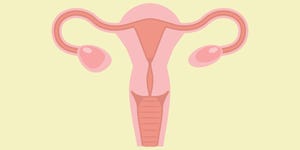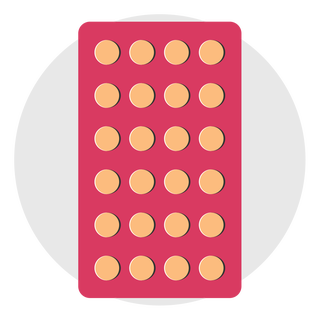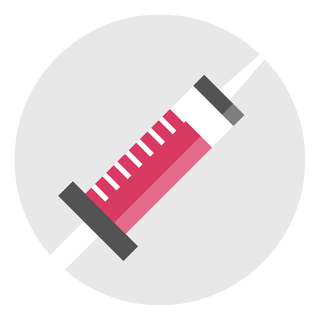
Let’s not be coy here: Bleeding out of your vagina every single month is already kind of a pain, so when your period decides to extend its visit a little longer than usual, it can be downright infuriating—and concerning, TBH.
Honestly, there’s a pretty big range of normal when it comes to your period’s length (a typical one can last between two to seven days). If your period is a day or two more or less than your usual, and you don’t see any other issues (like extreme menstrual pain or very heavy bleeding), you likely don’t need to be concerned.
But—and there’s always a but, isn’t there?—if your period lasts 10 days or more, or suddenly changes significantly in length for three or more cycles in a row, that warrants a call to your ob-gyn, says Tom Toth, M.D., a reproductive endocrinologist at Boston IVF.
Still, there’s no need to panic—most causes of prolonged menstrual bleeding (like most of the ones below) aren’t a big deal and can be fixed or improved with the help of your doctor, says Toth.
1. You have an IUD.
One of the most common causes of long periods in younger women are intrauterine devices (IUDs), a type of birth control placed directly into your cervix. There are two main types: a non-hormonal, copper-based IUD (like Paraguard), and a hormonal, progestin-based IUD (like Mirena and Skyla).
If prolonged periods last more than 3 cycles, go see your doctor.
It turns out that both can cause abnormally long bleeding, especially right after insertion, Toth says. Longer, heavier periods are a known side effect of the copper IUD. The progestin IUD, however, is often marketed to women as a way to reduce or even eliminate their periods. And while it typically does have that effect over time, the first few cycles may have more or longer bleeding than usual, he says.
With either IUD, if the prolonged periods don’t settle down after three cycles, it’s time to go back to your doctor, as it’s possible the IUD moved out of position or simply doesn’t play nice with your body.
2. You’re actually ovulating.
Menstruation is your body’s way of getting rid of the extra blood and tissue it saved up in case your egg got fertilized and there’s a baby, but sometimes the hormonal signals get crossed and you can bleed when you release the egg too, says Sherry Ross, MD, an ob-gyn and author of She-ology.

That’s called “intermenstrual bleeding,” and it occurs when the slight dip in estrogen that happens around ovulation causes some spotting. If the bleeding lasts a few days or happens close to the end of your last cycle, it may seem like your period is continuing forever. It’s not normally something to worry about, but if it changes suddenly or if you have serious pain, it’s time to see your doctor.
3. You’re pregnant (yes, really).
Wait just a second: Isn’t the tell-tale sign of pregnancy no periods? Yes, but not all the time, Toth says. “A common cause for abnormal menses, including longer bleeding, is pregnancy,” he explains, adding that typical symptoms of pregnancy, like nausea, may be absent. “Any time a woman has unusual bleeding, it’s always best to eliminate possibility of pregnancy with a blood test for pregnancy for reassurance,” he says.
4. You’re on hormonal birth control.
Getty Images
Anything that manipulates your hormones has the potential to make your periods longer, says Toth. This includes all types of hormonal birth control like the pill, patches, rings, shots, and implants. The good news is that there are lots of options with varying levels and types of hormones, so if your body doesn’t respond well to one type or dosage, there’s a good chance you can find a different one that will work.
The length of your period is just one factor your doctor will use to help you determine which type of birth control works best for you.
5. You had an early miscarriage.
Early miscarriages are much more common than you may realize. Up to half of all pregnancies end in miscarriage, often before the woman even realizes she was pregnant, according to the March of Dimes.
The only sign? An extra-heavy or long period. Your menstrual cycle length should return to normal within one to two cycles—if it stays abnormally long after three cycles, call your doctor, Toth says. About one in 100 women suffer from repeat miscarriages, so it’s important to rule out a condition that affects fertility like endometriosis.
6. You have PCOS.
Polycystic ovary syndrome (PCOS) affects about 10 percent of women of childbearing age, per the OWH. It’s named for the cysts that grow on the ovaries, preventing eggs from maturing, and often making the woman infertile.

PCOS also wreaks havoc on hormone levels, causing weight gain, excess hair growth, and yes, prolonged periods, Toth says. You’d think that not ovulating would give you a free pass on bleeding, but the opposite is often true, he adds—no egg means long, wacky cycles.
If you’re experiencing super-long periods along with other signs of PCOS, like migraines, facial hair growth, and weight gain, talk to your ob-gyn about getting tested for the condition.
7. You have thyroid issues.
One in eight women will suffer from low thyroid function, or hypothyroidism, at some point in their lives, according to the OWH.

Your thyroid is a little butterfly-shaped gland that controls the hormones that regulate many systems in your body, including how fast you burn calories, how fast your heart beats, and yes, menstruation. Having too little thyroid hormone can cause your period to be super long and heavy, they explain.
Other symptoms of hypothyroidism include weight gain, fatigue, and hair loss, so if you’re experiencing any of those, along with longer-than-normal periods, bring it up to your doctor, says Ross.
8. You have an underlying blood disorder.
Getty Images
It’s rare, but it’s possible that extra-long periods are a sign of an underlying illness, like a hematologic (blood) disease, says Toth. Some of these, like hemophilia or Von Willebrand disease, are genetic, so if you have this you likely already know about it.
Still, if your periods are lasting a super-long time, and you’ve already been cleared for other conditions, it’s worth checking in with your doctor about tests to rule out a blood disorder that you might not be aware of.
9. You have uterine polyps or fibroids.
“Uterine abnormalities, such as polyps or fibroids, can cause prolonged periods because they distort the endometrial cavity which can lead to increased blood flow,” Toth explains. Basically, your body senses something in your uterus that isn’t supposed to be there, and tries extra hard to get rid of it.
Abnormal periods can also be a sign of cervical cancer.
Polyps and fibroids sound scary, but they’re pretty common—up to 80 percent of women will have at least one before they’re 50, per the Office on Women’s Health (OWH). On their own, they don’t indicate a serious disease, like cancer.
These benign growths often don’t have any symptoms, and if they do, it’s usually prolonged periods, says Toth. Most likely your doc will just recommend keeping an eye on them, but if they cause pain or grow very large they can be surgically removed.
10. You have undiagnosed cervical cancer.
Abnormal vaginal bleeding—such as bleeding after vaginal sex, bleeding and spotting between periods can be a sign of cervical cancer. (Yet another reason to check in with your doctor if you notice something strange going on with your period.)
Because cervical abnormalities can be detected through Pap and HPV tests, make sure you stay on top of those, and always tell your doctor about your family history of female cancers.
11. Your body’s gearing up for menopause.
Oh yes, simply getting older can mess with your period. Menopause, which technically means you’ve gone 12 or more months without a period, hits women around age 50. However, your body starts the natural decline in hormones that leads up to menopause (a.k.a. perimenopause) as early as 35, says Christiane Northrup, M.D., author of Women’s Bodies, Women’s Wisdom.

When this happens, you may notice your periods getting longer or shorter, your cycle becoming more random, and other slight changes in your menstruation.
If you’ve ruled out everything else, and you’re in your mid- to late- thirties, your prolonged periods might simply be due to the natural process of aging. There is, however, such a thing as early menopause, which can affect women even in their twenties, so talk to your doctor if this runs in your family or if you’re showing other signs of menopause, like a low sex drive or insomnia.
Source: Read Full Article

